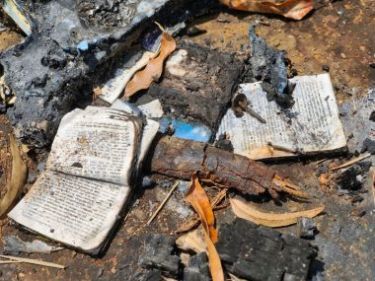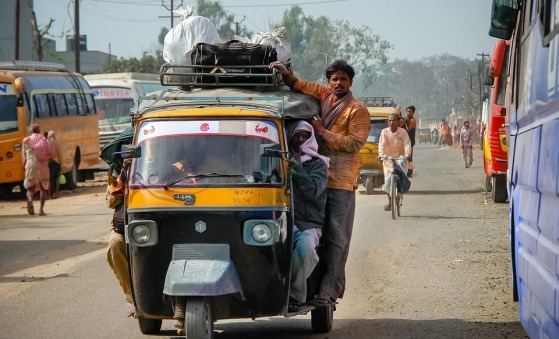
Christian leaders in Haryana have expressed deep concern after a group of local believers were reportedly pressured by a Hindu mob to deny their faith and burn copies of the Bible.
The alarm was raised when a video shared widely on social media appeared to show several Christians surrounded by a crowd shouting insults and demanding they abandon Christianity. In the footage, the Bible is mocked, and the believers seem to be compelled to sign statements rejecting their faith. They are then handed a liquid believed to be an accelerant and instructed to destroy Christian Scriptures, while the crowd chants slogans honouring Hindu deities.
Pradeep Mansi Gulati, president of the Christian organisation Bharatiya Masih Samaj, said he contacted senior police officials in Rohtak district on 20 November after learning about the incident, which reportedly took place on 9 November. According to Gulati, police officers promised assistance, but no formal complaint has yet been registered.
Local Hindu groups, including Arya Samaj, have long accused Pastor Yahowa Das and his independent congregation of attempting to convert people in the area. Christian representatives say Pastor Das had simply visited a family for a prayer service following the birth of a baby when a mob arrived, claiming a conversion ceremony was under way. The family and the pastor were allegedly harassed and then filmed as they were forced to denounce their faith.
The video has sparked strong criticism online, with many social media users accusing hardline groups of acting without fear of consequences under the Bharatiya Janata Party (BJP), which governs both the state and national government.
Activist Minakshi Singh said the lack of action by authorities, even many days after the incident, raises serious questions about the state’s commitment to protecting minorities.
In 2022, Haryana introduced the Prevention of Unlawful Conversion of Religion Act, which criminalises any conversion said to be obtained through force, deception, inducement, or marriage. Those accused must prove their innocence, and convictions can lead to one to five years in prison, along with substantial fines.
Adapted from UCA News.




